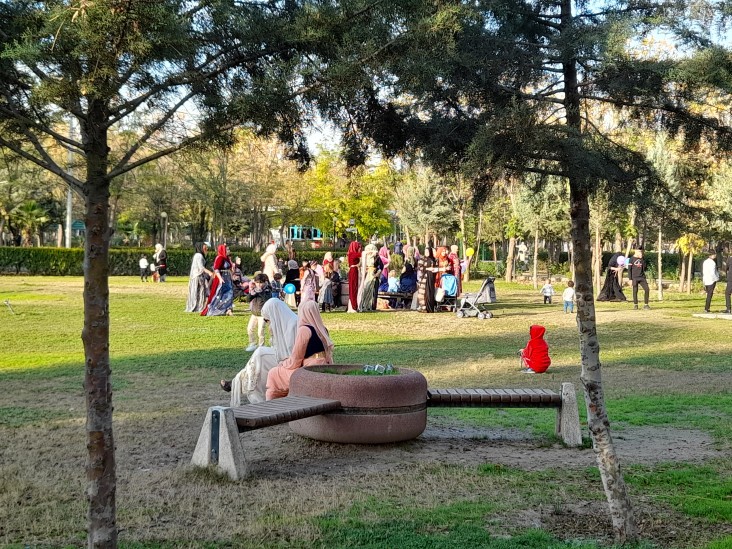Speeches Shim

“After fixing and installing more lights, the park is secure now,” said Raber Jalal, a shop owner from Erbil. “I feel confident that my wife and sister will be safe there.”
Can a person’s gender impact how safe they feel in a public space? Dark streets, isolated areas, and the risk of harassment can keep women and their families from enjoying public spaces, such as Sami Abdulrahman Park, a popular community gathering space in Erbil. Increased reports of harassment and poor lighting at night have discouraged local women and girls from spending time in the park.
To address these safety issues and encourage residents to return to the park, USAID worked with Erbil’s Gender Unit and civil society organization members to pilot Iraq’s first gender safety audit. Equipped with checklists, groups of local women and government officials, and civil society members walked through public spaces and identified obstacles that could make people - and women and girls in particular - feel unsafe, such as lack of signage, poor lighting, or lack of security personnel.
Based on findings from the gender safety audit, Sami Abdulrahman Park management replaced 300 lights, installed 30 surveillance cameras, improved signs and maps, and renovated the park’s police station. The Women’s Empowerment Unit also reached out to the local police force to ask for more officers in the park and worked with the Ministry of Communication to secure the funds necessary for replacing the park’s broken public announcement system.
Within a week from making these improvements, the average number of park visitors increased from 8,000 to 12,000 a day. “I feel more secure coming to the park now because there are lights everywhere,” said Frishta Sanger, 14, a student in Erbil. “After fixing and installing more lights, the park is secure now,” said Raber Jalal, a shop owner from Erbil. “I feel confident that my wife and sister will be safe there.”
Motivated by this success, Erbil’s Gender Unit is working with the local water and electricity utilities to plan other safety audits to improve service delivery and planning for all residents. The USAID-funded IGPA/Takamul program is also beginning to train local officials and community groups in other provinces to conduct similar audits to improve accessibility for a wide range of public services and spaces. “Addressing the findings from these audits can include helping a mother feel comfortable traveling to a government office or guiding officials on where to place trash bins so that everyone can access them. When services are more accessible, everyone benefits.” said Rekhan M. Saeed, Head of Erbil’s Gender Unit.

Comment
Make a general inquiry or suggest an improvement.